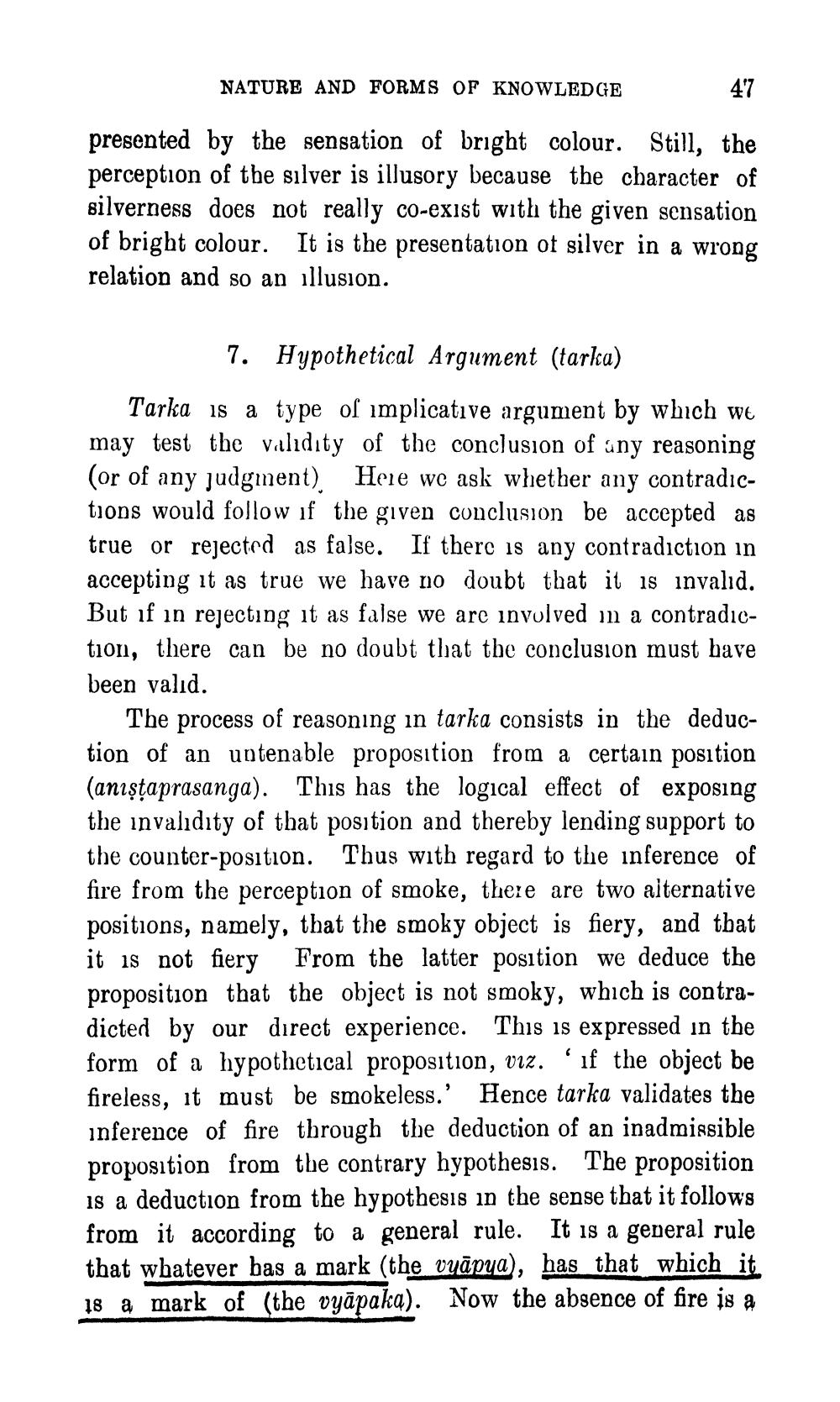________________
NATURE AND FORMS OF KNOWLEDGE 47 presented by the sensation of bright colour. Still, the perception of the silver is illusory because the character of silverness does not really co-exist with the given sensation of bright colour. It is the presentation of silver in a wrong relation and so an illusion.
7. Hypothetical Argument (tarka) Tarka is a type of implicative argument by which we may test the validity of the conclusion of any reasoning (or of any judgment). Here we ask whether any contradıctions would follow if the given conclusion be accepted as true or rejected as false. If there is any contradiction in accepting it as true we have no doubt that it is invalid. But if in rejecting it as false we are involved m a contradiction, there can be no doubt that the conclusion must have been valıd.
The process of reasoning in tarka consists in the deduction of an untenable proposition from a certain position (anıstaprasanga). This has the logical effect of exposing the invalidity of that position and thereby lending support to the counter-position. Thus with regard to the inference of fire from the perception of smoke, there are two alternative positions, namely, that the smoky object is fiery, and that it is not fiery From the latter position we deduce the proposition that the object is not smoky, which is contradicted by our direct experience. This is expressed in the form of a hypothetical proposition, viz. 'if the object be fireless, it must be smokeless.' Hence tarka validates the inference of fire through the deduction of an inadmissible proposition from the contrary hypothesis. The proposition is a deduction from the hypothesis in the sense that it follows from it according to a general rule. It is a general rule that whatever bas a mark (the vyāpya), has that which it 18 a mark of (the vyāpaka). Now the absence of fire is a




